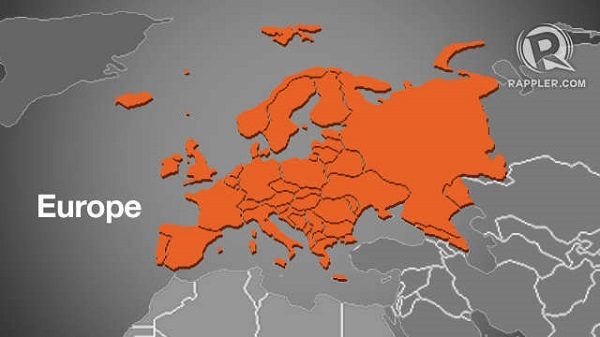SUMMARY
This is AI generated summarization, which may have errors. For context, always refer to the full article.

LONDON, United Kingdom – Britain and the Netherlands go to the polls on Thursday, May 22, starting the ball rolling on elections to the European parliament that are expected to see a swing towards populist right-wing parties.
The elections, which began at 0530 GMT in the Netherlands and are spread over 4 days in the EU’s 28 member states, are expected to see major gains for parties bent on dismantling the European Union from the inside.
“I believe in Europe, but I think there are far too many rules coming from Brussels,” Margreet de Jonge, 63, told Agence France-Presse as she cast her ballot in The Hague, echoing the view of many that the EU has become a bloated bureaucracy.
When the results are announced from 2100 GMT on Sunday, eurosceptic parties may top the polls in Britain, France, Italy and the Netherlands.
The anti-immigration and anti-EU UK Independence Party (UKIP) of Nigel Farage, and Geert Wilders’ virulently anti-Islam Party of Freedom (PVV), are both forecast to make big gains.
UKIP’s rise has rocked the British political establishment as a party without a single representative in its national parliament heads into the European election slightly ahead of the main opposition Labour Party, according to a poll published by the Times on the morning of the vote.
Farage, a former financial trader who likes to hold court with journalists in the pub, has ruled out joining a far-right bloc of Wilders’ party and France’s National Front, led by Marine Le Pen.
Wilders hopes UKIP will sign up to the grouping, but Farage has refused to do business with an alliance involving the National Front, which he considers anti-Semitic.
Jobless turn against EU
With 26 million people out of work across the EU, including more than half of those aged under 25 in countries such as Greece and Spain, eurosceptic and far-right parties have picked up massive support on anti-immigration and anti-EU platforms.
The latest polls show eurosceptics and others have struck a chord with disgruntled voters and could secure almost 100 seats in the new parliament, trebling their number in the 751-seat assembly.
A survey by PollWatch showed conservatives holding a narrow lead over their socialist rivals in the next parliament, with the European People’s Party (EPP) on for 217 seats against 201 for the Socialists and Democrats (S&D).
While that would leave the mainstream groups still the two biggest parties, the EPP would drop from 35.8% to just short of 29% of the total seats, with the S&D up marginally to 26.8%.
UKIP highlights the trend of a shift towards eurosceptic parties. It looks certain to sharply increase the 9 seats it currently holds in the European Parliament.
It is also likely to do well in local council elections that also take place in Britain on Thursday.
Simon Hix, a political science specialist at the London School of Economics, told AFP, “It could be perceived as a breakthrough election (because) they could win seats and win votes in all parts of the country.”
Nevertheless, UKIP has endured a troubled few days in the build-up to the election.
Last week, Farage was forced to back-pedal after saying in a radio interview that he would be concerned if he had to live next door to Romanians, and on Tuesday, a “multi-cultural street party” that UKIP organized to counter allegations it is racist descended into farce.
Protesters hijacked the event in a London suburb and the Caribbean steel band booked for the event stopped playing after 5 minutes when its members realized who had booked them for the event.
In the Netherlands, Wilders’ party hopes to garner 6 of the 26 seats up for grabs, although unlike Farage he is a lawmaker in his national parliament so will not stand for a Brussels seat.
The platinum-haired Wilders has waged an energetic campaign, vowing to take the Netherlands out of the EU and abandon the euro.
Analysts said however that voter apathy among eurosceptics in the Netherlands could have a negative impact on the PVV’s score.
“If you’re against Europe in your thinking you do not have the correct information about what is at stake,” civil servant Marja Bijleveld told AFP as she became the first to vote at a train station in The Hague.
“I believe in a Europe that is united and stands together,” she said. – Rappler.com
Add a comment
How does this make you feel?
There are no comments yet. Add your comment to start the conversation.